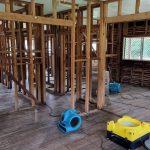Your cart is currently empty!
Category: Drywall Installation
-

Handyman Techniques for Drywall Installation
When it comes to installing drywall, there are numerous techniques and strategies to consider for a successful project. Whether you are upgrading a room or replacing existing drywall, having the right knowledge is essential to achieve the desired results. Before you hire a handyman, it’s crucial to understand several important factors. These include verifying the handyman’s licensing, comprehending the cost of drywall installation, and choosing a qualified professional whose skills align with your project needs. Taking these steps will not only save you money but also ensure quality work that meets your expectations.

Step-by-Step Guide to Obtaining a Handyman’s License for Drywall Installation
If you aspire to work in the drywall installation industry, obtaining a handyman’s license should be a top priority for your professional journey. While not mandatory in every state, several states require this credential to ensure compliance with local regulations and standards. To determine if you need one, begin by researching the specific licensing requirements in your state, as this will help you navigate the legal landscape effectively.
For smaller tasks, such as painting or minor appliance repairs, most states do not necessitate a handyman’s license. However, if you aim to tackle larger projects, you may need to acquire a separate license for each undertaking, depending on local laws and regulations. This distinction is critical, as it impacts your ability to legally operate within your area.
In addition to a handyman’s license, securing insurance is crucial for protecting yourself and your clients. A contractor’s liability and property damage insurance policy will safeguard you in case of injuries or damages that occur during the project. If you plan to hire employees, you will also need workers’ compensation insurance to cover any workplace injuries. Thoroughly reviewing construction plans will help you estimate material and labor costs accurately, enabling you to submit competitive bids without compromising quality or safety.
When applying for a handyman’s license specifically for drywall installation, certain standards must be met to ensure you are qualified. For instance, in Georgia, applicants must pass trade, business, and law examinations to demonstrate their competence. Additionally, having a minimum of two years of experience as a handyman, along with proof of general liability and workers’ compensation insurance, is essential for your application to be considered. If your work involves projects exceeding $1,000 or requires construction permits in various jurisdictions—like Hawaii—a general contractor’s license is also necessary to comply with state regulations.
Although a handyman’s license for drywall installation isn’t universally required, it is highly recommended if you plan to perform more extensive work beyond simple repairs and installations. Each state has its own requirements, but typically, they all entail having liability insurance and a handyman’s license to safeguard against potential legal issues and property damage claims, thus protecting both you and your clients.
To succeed as a handyman, it’s vital to familiarize yourself with the varying standards and licensing requirements across states. There are often significant differences regarding handyman licenses at the local level, so thorough research is essential if you intend to handle various projects effectively and legally.
Understanding the Factors Influencing Drywall Installation Costs: A Comprehensive Breakdown
The cost of drywall installation is influenced by multiple factors, including the scope of the project, the type of materials needed, and the complexity of the tasks involved. For instance, larger holes typically necessitate full drywall replacement, which can significantly affect the overall expense. Additionally, the number of materials required will directly impact both material and labor costs, making it crucial to assess the job’s size accurately to avoid unexpected expenses. A skilled handyman can often complete smaller tasks efficiently, often within just a few hours, saving you time and money.
On the other hand, major drywall repairs due to extensive holes, water damage, or structural issues require more time and effort. In severe cases, the entire drywall section may need to be removed and replaced, which could necessitate the expertise of a professional with specialized skills, thereby increasing the overall costs involved. Understanding these dynamics will help you budget effectively for your project.
Proper planning and preparation are vital when it comes to drywall installation. A comprehensive list of supplies and tools is necessary, and the overall cost is determined by both the size of the area and the complexity of the job. Handymen often require the assistance of additional workers, particularly for larger projects, which can further affect labor costs. Furthermore, the installation cost can fluctuate based on whether prep work and cleanup are required, as well as the specific design complexities involved. Complex ceiling designs or numerous corners can also contribute to increased material and labor expenses, making thorough planning essential.
The type of drywall used will also play a significant role in the overall cost of installation. Standard drywall is commonly used in most commercial constructions and comes in a variety of widths and thicknesses, which can affect pricing based on your specific needs and preferences. Specialty drywall types, such as moisture-resistant or fire-rated options, may come at a premium but offer enhanced performance in specific environments.
For larger tasks, the expenses can accumulate quickly, potentially leading to budget overruns if not managed properly. The overall cost largely hinges on the project’s size and intricacy. Smaller jobs might have a higher cost per square foot, yet drywall remains a more cost-effective option compared to other construction materials, providing a balance between affordability and quality.
While hiring a handyman may seem like a cost-effective solution, enlisting the services of a drywall specialist can be beneficial in the long run. Specialists possess the expertise required for tasks ranging from removing popcorn ceilings to constructing drop ceilings. Their experience with taping joints and applying textures can ensure a higher quality of work, ultimately saving you time and potential rework. Additionally, they can expertly handle issues like water damage, hole repairs, and more complicated textures that require specialized skills.
When selecting a drywall contractor, it’s essential to obtain a detailed contract that outlines the project scope and associated costs clearly. The contract should specify the number of drywall sheets needed, the type of material, and a comprehensive breakdown of labor and materials to avoid any surprises during the project.
Strategic Approaches to Selecting the Right Handyman for Your Drywall Needs
Before hiring a handyman for drywall installation, it’s crucial to ask several key questions to ensure you make an informed decision. Start by inquiring about the estimated timeline for the project. Even the most skilled drywall installers may have varying schedules, so understanding the timeframe will help avoid dissatisfaction upon project completion and ensure that your project is completed timely.
It’s advisable to interview at least three potential handymen before making your choice. During these interviews, ask about their experience and request references from previous clients. Ensuring that the handyman you choose possesses the necessary skills and tools for the job is essential to achieving the best possible outcome. Additionally, confirm that their services fit within your budget, as this transparency will help build trust between you and the handyman.
Next, assess the potential costs associated with drywall installation. By comparing bids from various contractors, you can gain insights into the prevailing rates for your project. A reputable contractor should provide a detailed cost breakdown, encompassing all materials, supplies, and any additional expenses, allowing you to make an educated decision without hidden costs.
Verifying credentials and insurance is another critical step before hiring a handyman. Obtaining a written contract and references can provide peace of mind and help you ascertain that the handyman is the right fit for your project. Requesting examples of their previous work will give you further confidence in your decision and ensure quality workmanship.
A capable handyman should have a diverse skill set, allowing them to manage a variety of tasks effectively. For instance, if your ceiling has a hole that requires drywall installation, a handyman should be equipped to handle that. They should also be able to assist with related tasks, such as installing new light fixtures or repairing popcorn texturing, which may arise during the drywall project.
Check the handyman’s experience and references thoroughly before making a commitment. An experienced handyman is more likely to execute the job competently, increasing the chances of a successful project. It’s wise to steer clear of contractors who employ high-pressure sales tactics or have inflated advertising budgets, as these may indicate a lack of genuine quality.
Keep your budget at the forefront of your mind when hiring a handyman for drywall installation. An efficient handyman should be able to complete the job in a timely manner while respecting your property. They should also prioritize cleanliness, ensuring that the workspace is tidy post-project, which is essential for maintaining a safe and pleasant home environment.
A handyman familiar with the intricacies of plumbing and electrical systems is an excellent choice for repairing leaks or tackling related tasks. They can also assist with a range of projects, including hole repairs, light painting, deck repairs, and drywall installations, making them a versatile addition to your home improvement team.
Locating a trustworthy handyman in your area is entirely feasible with the right approach. Explore online reviews and seek recommendations from friends and family to find reliable candidates. Additionally, don’t hesitate to ask your handyman for client references to verify their reputation and capabilities, ensuring that you make a well-informed hiring decision.
The post How Does a Handyman Do Drywall Installation? appeared first on https://gqcentral.co.uk
The Article Drywall Installation Techniques by a Handyman Was Found On https://limitsofstrategy.com
-

How Does a Handyman Go About Drywall Installation?
When planning a drywall installation job, you must work with a reliable handyman or contractor. You should also be aware of the associated fees. Here are some pointers to assist you to make the best decision when selecting a drywall contractor.
Tips for drywall installation
A handyman should follow a few fundamental principles for drywall installation. First, he should choose fasteners that are properly sized for the wall surface. This is equivalent to 1-1/4-inch screws for 1/2-inch rock and 1-5/8-inch screws for 5/8-inch rock. Using the right size screws is critical since lengthy ones might cause nail pops. Second, he should avoid setting or hammering the screws too near to the edge of the sheet, as this might cause them to shatter. He should also place trim around screws that are too near to the apertures to prevent them from showing through the drywall sheet.
Third, he should put on safety equipment. Working with drywall is hazardous; therefore he should protect his lungs by using a face mask or respirator. He should also use good lifting techniques. While lifting, avoid twisting. He should also be conscious of his surroundings. Fourth, he should keep dust out of their lungs. It is preferable to use a respirator and the appropriate mask. Finally, they should take breaks on a regular basis.
Finally, a handyman should work using high-quality tools. The use of low-cost instruments increases the danger of harm. It is also critical to avoid utilizing outdated or off-brand tools. Furthermore, inexpensive techniques may break while cutting through superfluous material. As a consequence, they may be useless and inflict more harm.
Drywall installation is hardly rocket science, but understanding the fundamentals may make the process go much more quickly. Unlike some other home renovation jobs, drywall installation is one of the most affordable and simple building materials to utilize. A few easy recommendations might assist you in saving money and avoiding expensive blunders.
Remember that the most difficult component is hanging the top course of drywall. The sheets may fracture or fall if done poorly. Make certain that the drywall is correctly aligned. The whole sheet of drywall should be securely lifted and resting on the ceiling. After that, attach it with drywall nails. Remember that the top row of drywall should be hung before the bottom row.
Cost of drywall
The drywall installation cost may vary greatly based on the detail needed. There are two sorts of textures: hand-applied and spray-applied. Hand-applied textures are created by applying them by hand using a brush or trowel. The latter is less costly, but it takes more time and expertise.
When done on new structures, drywall installation costs substantially less. If you hire a handyman, keep in mind that labor expenditures are merely the beginning of the process. You’ll also need to include in typical contractor markup and overhead, which may range from 13% to 22%. You’ll also need to account for sales tax and any permit costs levied by your local construction authority.
Drywall is an important component of a house that is easily damaged. Replacing a few sheets is quite affordable, but a tiny hole in the wall may be filled with a specific solution. On the other hand, large holes will need the removal and replacement of the drywall. The total cost of the repairs will be determined by the materials and labor needed.
You must verify that the handyman you engage is licensed and provides you with a detailed breakdown of all fees. The cost per square foot will also be determined by the location and quality of the finish.
Choosing a drywall contractor
Experience is a key consideration when selecting a drywall contractor for your job. Hiring a more experienced contractor can save you time and money while ensuring the project’s success. Inquire about the company’s history, license, insurance, and permissions before hiring a contractor. You should also inquire about the company’s commitment to customer satisfaction as well as start and end dates.
Check to see whether the drywall contractor in your region is bonded and licensed. Check to see whether the contractor has established a credit line with the supplier. If they don’t, you could be taking a chance. Always examine a contractor’s reputation online by reading reviews and testimonials.
Many quotations can provide a solid indication of what to anticipate. This might be a warning sign if the lowest quotation is too low. The typical cost is determined by various elements, including the contractor’s expertise, drywall, and the kind of structure.
Before commencing work, a qualified contractor should clearly explain the procedure. In this manner, they can guarantee that you are completely satisfied with your job. A reputable contractor should also be eager to answer any queries you may have. It is preferable to choose a contractor with greater expertise.
A professional drywall contractor should have the appropriate insurance coverage.
Drywalling, like any other construction work, is an art that not everyone can master. You should verify the contractor’s insurance and license status. They must also adhere to construction regulations. Also, before selecting a contractor, make sure you discuss your budget with him.
A qualified drywall contractor will provide all of the supplies required for the work. They will also provide the equipment needed to hang the drywall. Sanding and taping tools are examples of these tools. They will also be able to reach high spots and have the necessary expertise to do the work effectively. Hiring a drywall contractor can save you time and money.
Drywall is an expensive investment in your building. You don’t want to make errors that will cost you money in repairs or replacements later. Hiring a competent drywall contractor ensures that your new wall is safely built. A faulty drywall installation might render the whole area unstable. When you hang picture frames or other objects on it, it may potentially cause harm.
Choosing a handyman
It is essential to hire a handyman for drywall installations. They can give you a ballpark figure for the overall cost. However, getting a complete breakdown of the prices is important, including all supplies, time spent working, and any extra fees is important. The cost breakdown will also show you how much you should anticipate spending for the work.
Examine their expertise before choosing a handyman to assist you with drywall installation. In your state, the contractor should be licensed and insured. This will safeguard both you and your house. A licensed contractor will also have a good reputation. This will assist you in making a better-educated selection.
Choosing a handyman for drywall installation might be difficult, but keep in mind that the procedure is complicated. Drywall installation requires particular knowledge and abilities. Some contractors will have specialized knowledge, while others can handle a variety of duties. You should also inquire about the materials that will be used. Because some drywall is more durable than others, it is critical to clarify these issues with the contractor before hiring.
While experience is important, it is not the sole element. A more experienced handyman may save you money and time. Similar jobs are likely to have been done by experienced drywall contractors in the past. In order to determine their capabilities, inquire about their previous initiatives.
Interview at least three contractors before hiring a handyman. Inquire about their prior experience and look for referrals from former clients. Also, be certain that they are using high-quality tools and equipment. You don’t want to be taken advantage of. A good firm would never request money before the assignment is completed. Be alert if a handyman seeks money without your authorization.
You should pick an experienced and skilled contractor. You want a contractor that will do a task swiftly, effectively, and with little property damage. They should also be pleasant and punctual and clean up after themselves. Before they begin work, you should also secure a service contract from them.
The post How Does a Handyman Go About Drywall Installation? appeared first on https://davidmorrismp.co.uk
The post How Does a Handyman Go About Drywall Installation? appeared first on https://gqcentral.co.uk
